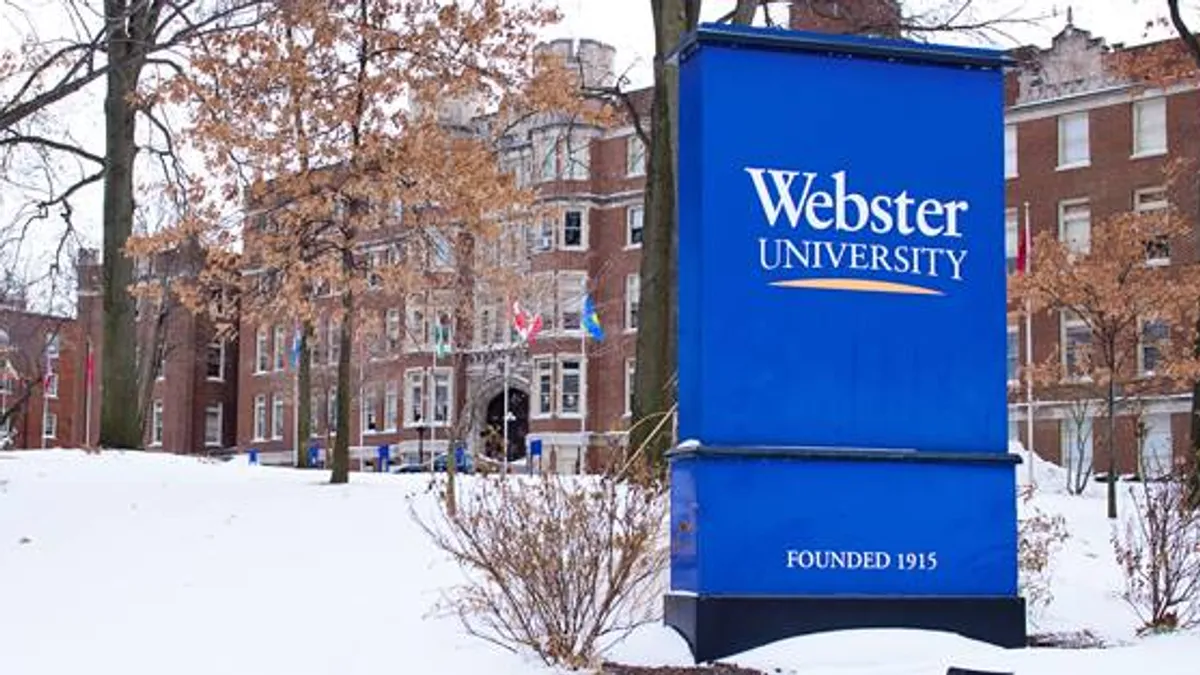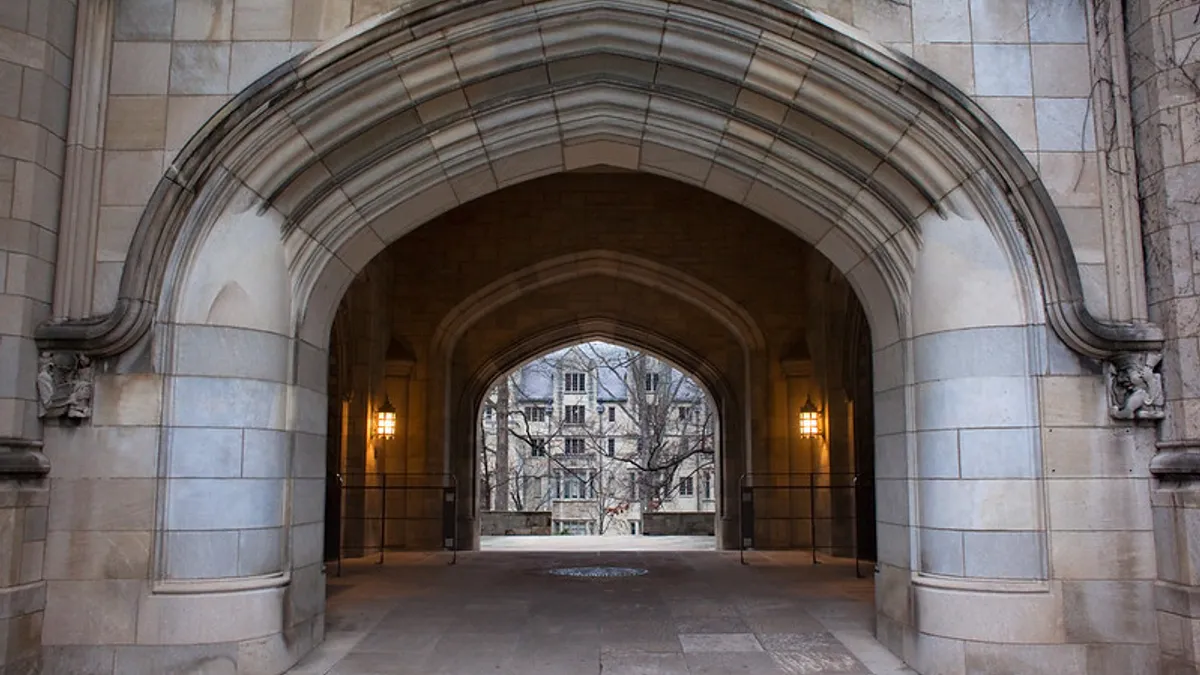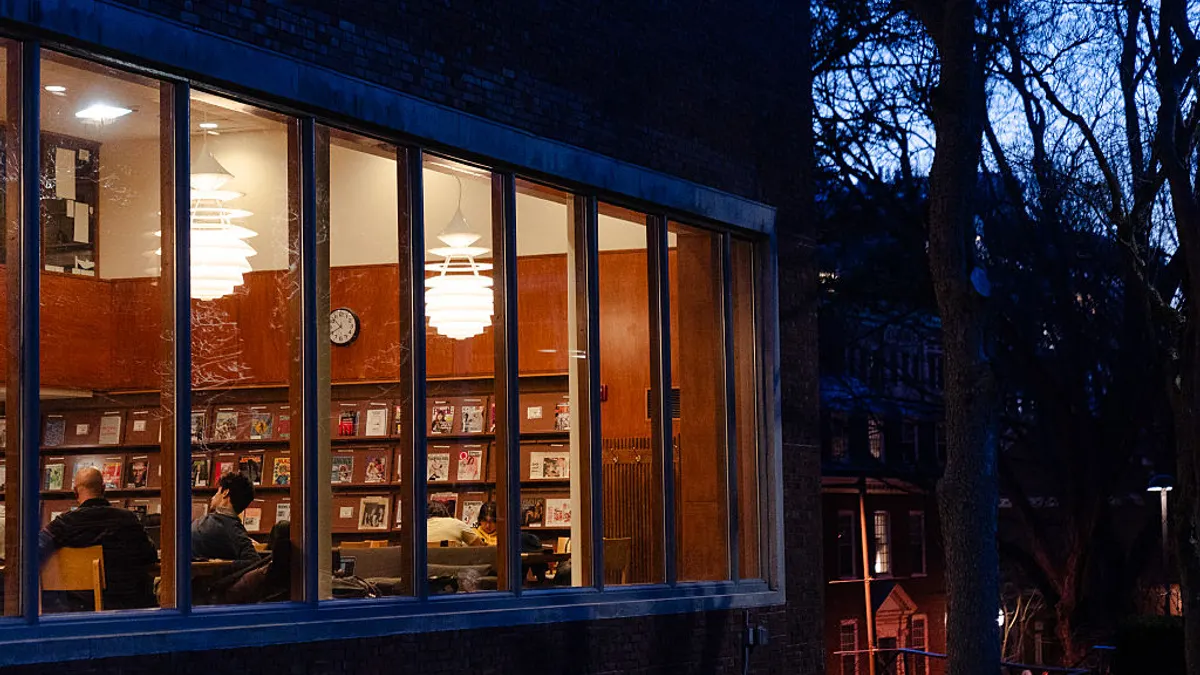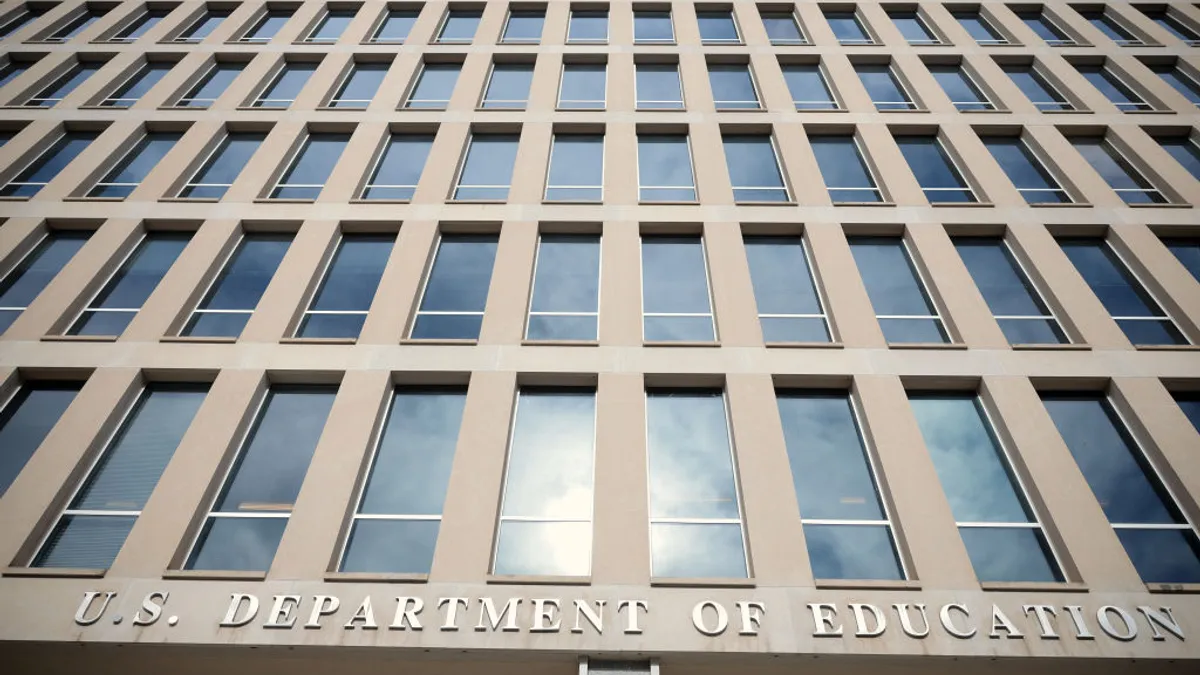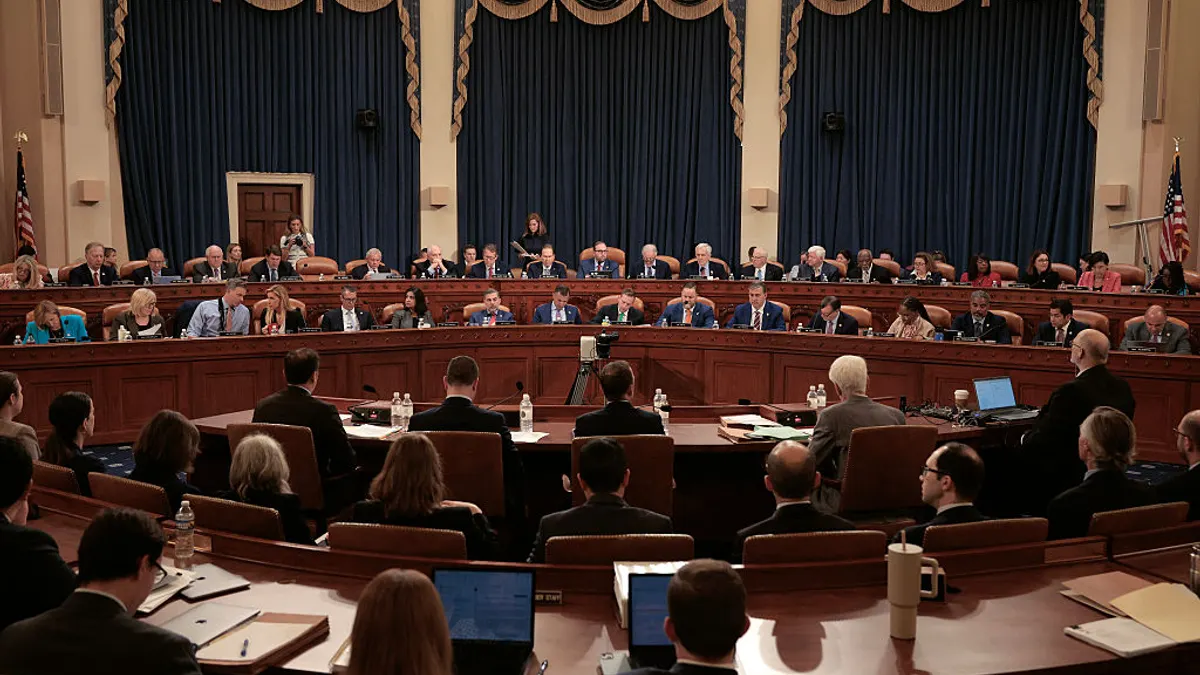Webster University, in Missouri, was sued this month over allegations that it hasn’t paid rent on a building it leases in downtown St. Louis, compounding the private nonprofit college’s financial difficulties.
The university skipped out on rent payments from January through August of this year, according to the lawsuit filed in federal circuit court last week. The amount owed in rent and other expenses totals “well in excess of $75,000,” the lawsuit states.
The situation hearkens back to the recent financial crisis at Alderson Broaddus University, a private nonprofit in West Virginia that faced an unpaid utility bill of roughly $776,000 right before its closure last month.
Webster doesn’t have all of the same financial red flags as Alderson Broaddus — just this week the Missouri college trumpeted about recording its highest enrollment since 2018. But the lawsuit’s accusations still spell trouble for an institution that has shed thousands of students over the past several years and ended the 2022 fiscal year with $30.6 million in operating losses.
A Webster spokesperson declined to comment on the lawsuit Wednesday.
What’s in a lease?
Webster has leased space at the Arcade Building in St. Louis since 2014. It rents out more than 54,500 square feet of the building, as well as 40 underground parking stalls. Webster has locations in several other countries and states, including Maryland, Texas, South Carolina and Georgia.
The university’s main campus is located in the Webster Groves suburb of St. Louis, more than 10 miles from the Arcade Building. But Webster has long maintained a presence in downtown St. Louis.
Before renting the Arcade Building, its downtown location was in a building called the Old Post Office from 2006 to 2016.
Its move into the Arcade Building was heralded as a mutual boon for the university and the city of St. Louis, which in 2012 had “enticed” the property’s owners to redevelop it, according to the lawsuit.
Those owners — business structures affiliated with housing developer Dominium — sought a financially healthy tenant to move forward with the $120 million overhaul, the lawsuit states.
That was Webster, “the same tenant that has now breached its lease obligations to the Plaintiff and has put Plaintiff in significant financial jeopardy,” according to the lawsuit.
Emily Cantwell, an attorney representing the plaintiffs, declined to comment Wednesday.
Webster’s history
Webster might have been financially sound when it signed the Arcade Building lease, but that's no longer the case.
The university has lost thousands of students over the last several years. Seven or so years ago, it enrolled more than 17,000 students worldwide.
The university said in a public statement Wednesday its forecasted enrollment for the 2023-24 academic year — over 12,600 students — is its highest since 2018.
That’s 2,200 more students from the previous year, “a stunning increase,” officials said. The jump was driven in part by recruitment of international students, who number more than 2,400 in 2023-24 — triple from the previous year.
“Webster continues to show healthy growth since the end of the pandemic, bucking national enrollment trends through a combination of boosting strong student support services and introducing cutting-edge academic programs that prepare our students for success,” Chancellor Elizabeth Stroble said in the statement.
But while the university’s enrollment flourished this year, its finances remain shaky.
Webster has operated in the red since fiscal 2017, tax documents show. It ended fiscal 2022 with about $153.8 million in liabilities and $215.8 million in net assets, according to its most recently available financial audit.
Some of its debts stem from the roughly $63 million in bonds it was issued, money used in part to construct campus buildings including a $44 million science center. Webster officials have banked on recruiting students in high-demand fields like health sciences to help shore up enrollment.
That strategy has not completely righted its financial ship — in fiscal 2022, Webster relied on a $30 million line of credit to cover its budget deficit. And in fiscal 2023, it obtained another line of credit, $10 million, while its governing board approved moving up to $25 million from its endowment to cover operating expenses.
Entities take notice
The financial instability resulted in credit rating agency Moody’s Investors Service downgrading the university’s outlook to negative in December 2022.
While the university has “sound nominal wealth and scale,” its sizable deficits mean it is unstable, Moody’s said in a report.
It acknowledged Webster adjusted its enrollment and budget strategies, but it said “weak” demographics of the Midwest and a competitive market present headwinds.
“Restoring balanced operations will prove difficult over at least the near-term,” the agency said. “While the university has consistently adjusted expenses, it has been unable to match the reductions to the magnitude of revenue declines.”
Whether the university’s financial woes affect its accreditation remains to be seen. Its accreditor, the Higher Learning Commission, last affirmed its status in 2018, but accreditors can request information about a financial shakeup at any time, like when a lawsuit is filed.
“Accreditation is an ongoing relationship and HLC will continue its process for the interim monitoring,” HLC spokesperson Heather Berg said in an email Wednesday. Berg said this monitoring asks colleges for “specific important information” and tracks how they are “coping with certain changes or challenges.”



